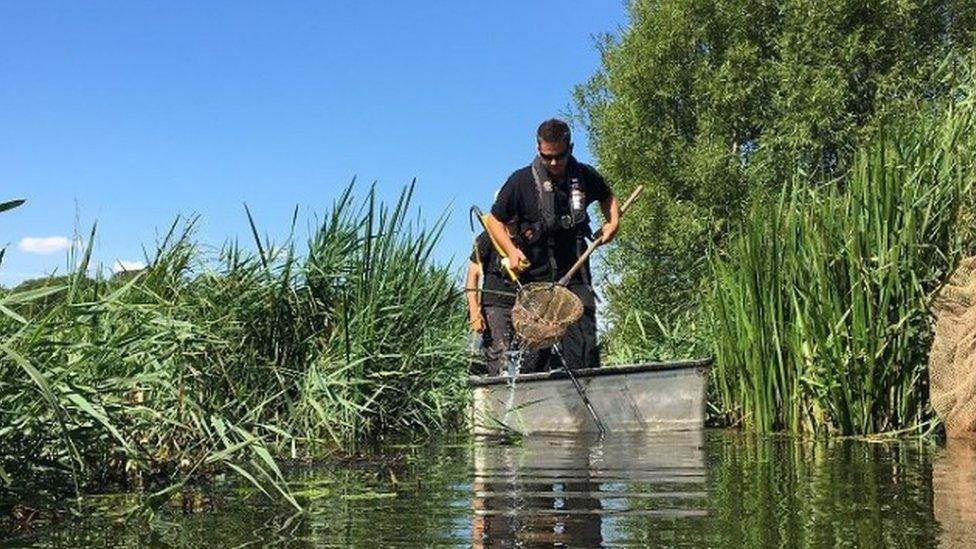More than 600 fish found during river survey
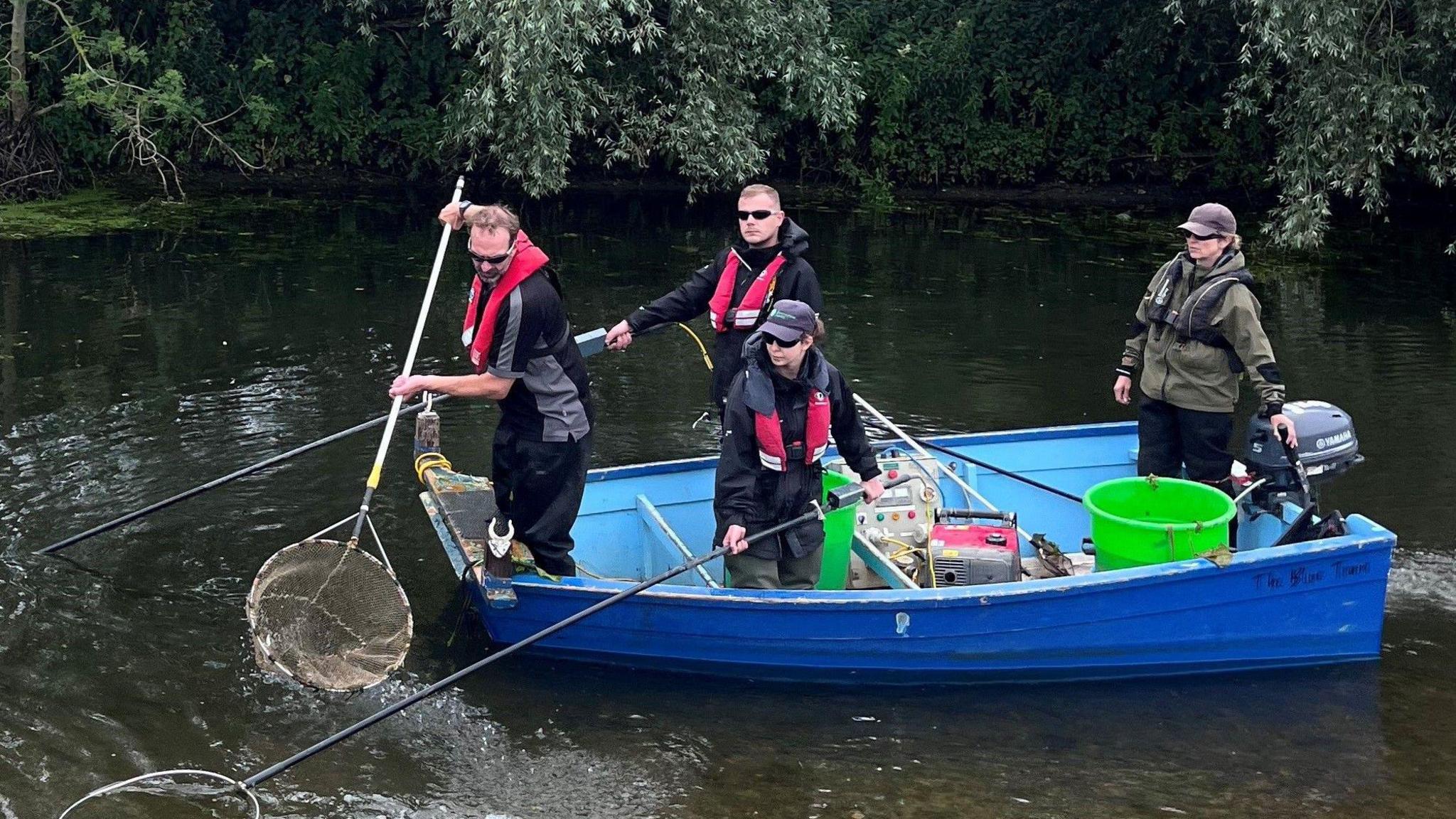
Eels, bullhead, tench, dace and many other fish were found during the survey of the River Stour
- Published
More than 600 fish from across 15 different species have been found during survey work of a river.
Environment Agency staff visited the River Stour near Dedham on the Essex/Suffolk border recently.
Staff undertook an electrofishing survey - a harmless and humane way of catching fish to examine them.
The body undertakes regularly surveys along all the main rivers and tributaries in East Anglia to keep track of populations and river health, according to Dan Hayter who works for the body in the region.
"To conduct a fish survey, we measure out a 100-metre stretch of the river and place a large stop net at the start and end of the stretch to prevent fish moving in and out during the survey," explained Mr Hayter, whose job is to monitor the numbers of fish in the region's rivers.
"Four of us then get in a motorised boat and travel along the stretch with specialised electrofishing equipment."
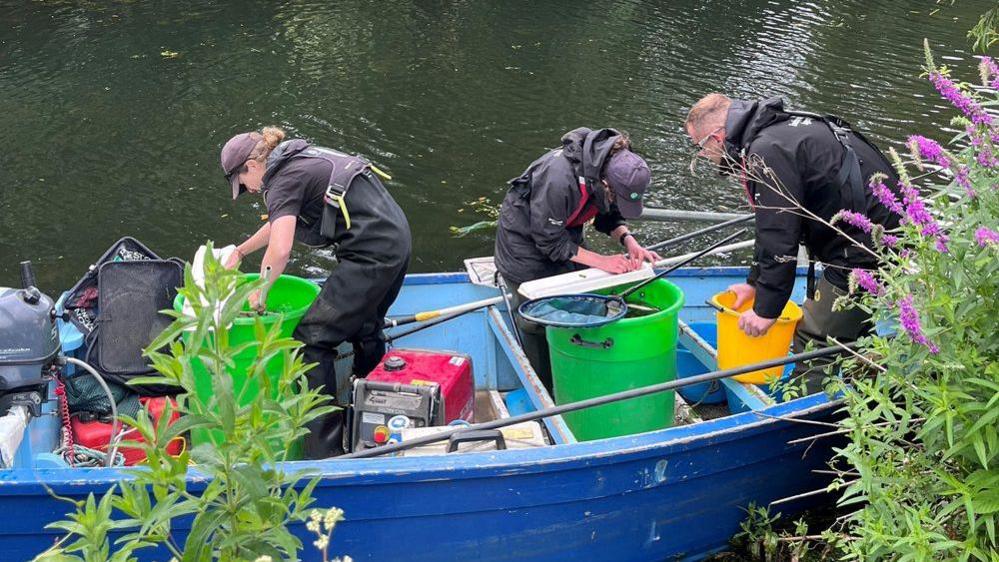
Survey teams can be on rivers and waterways for up to 10 hours at a time conducting their work
According to Mr Hayter, electrofishing involves passing a mild electrical field through the water to temporarily immobilise the fish allowing them to be caught.
During the work, one person had to manoeuvre the boat, two others operated the handheld electrodes and one other person had a net to catch the fish and move them to a recovery and holding container ready to be counted.
The survey of the River Stour found eels, flounder, chub, roach and many other species living there.
The work is vital in ensuring anglers are aware of fish stock levels and it helps the Environment Agency monitor the river's health.
It can take teams 10-12 hours to complete their work on a stretch of a river.
There is 40 years of data for this stretch of river, which means it has one of the best data sets for electrofishing in the UK.
Get in touch
Do you have a story suggestion for Suffolk?
Follow Suffolk news on BBC Sounds, Facebook, external, Instagram, external and X, external.
Stories like this
- Published18 August 2024
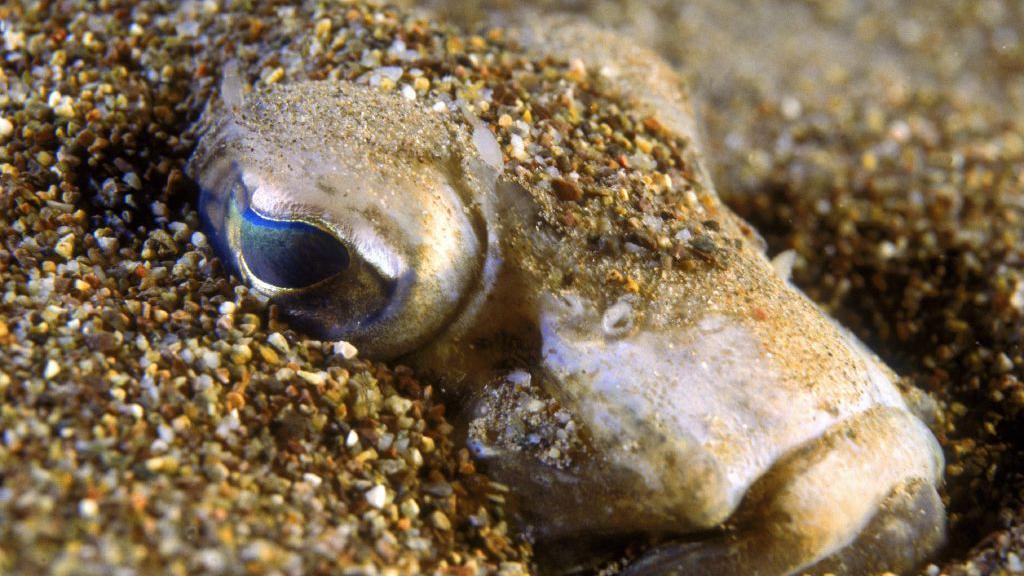
- Published23 June 2022
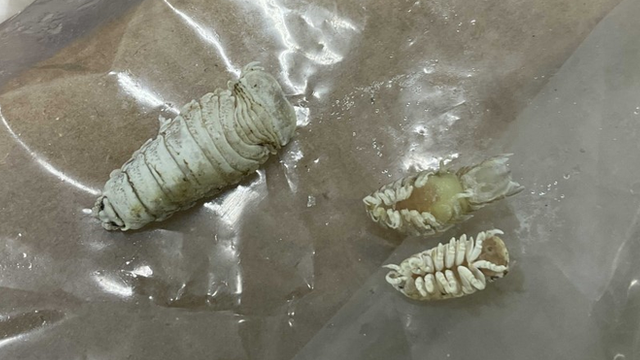
- Published1 August 2018
